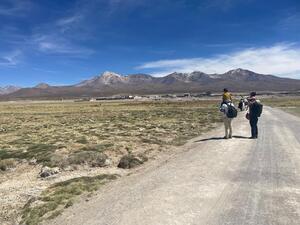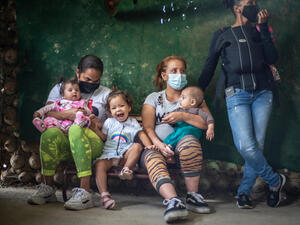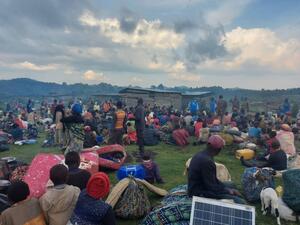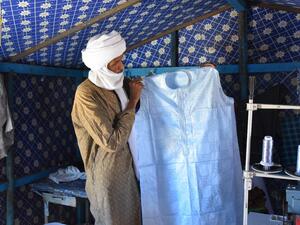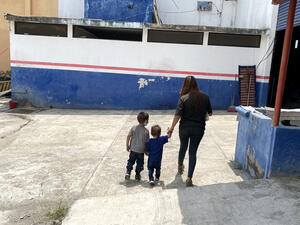West Africa: Ensuring effective alternatives to dangerous journeys
West Africa: Ensuring effective alternatives to dangerous journeys
UNHCR, the UN Refugee Agency, brought together representatives of national asylum authorities from all fifteen West African countries and Chad to discuss key challenges and opportunities relating to the protection of refugees in mixed migratory flows. They were joined on 7 December 2017 by representatives of ECOWAS, the African Union, IOM and other UN agencies, as well as civil society and academics.
“Mixed migration is a complex phenomenon because of the multiplicity of factors driving the movements and the different needs and profiles of the persons involved,” said Liz Ahua, UNHCR Regional Representative for West Africa. “People are using the same routes and modes of transportation to travel, but moving for different reasons,” she said.
Hundreds of thousands of people are on the move every year within West Africa and toward other regions of the world. Many are fleeing persecution, human rights violations and armed conflict in their home countries and may be entitled to protection as refugees under international law.
“Many of those embarking on perilous journeys from West Africa toward North Africa and Europe are exposed to unspeakable human rights abuses,” said Ms. Ahua. “No refugee or asylum seeker should have to die seeking international protection,” she said. “Strengthening access to protection and durable solutions for refugees in the region is critical to ensuring effective alternatives to dangerous journeys,” she said.
All West African countries, at one time or another, have faced situations of mass influx of persons seeking asylum, and responded with great generosity. Today, all are countries of origin, transit and destination for mixed flows. “The mixed migration context poses unique challenges to ensuring respect for the right to seek and enjoy asylum,” said Ms. Ahua.
Lack of effective protection in some countries of asylum or transit, poor reception conditions, lengthy asylum procedures, as well as lack of assistance and opportunities to rebuild their lives are among the reasons for onward movements by refugees and asylum-seekers.
To address this complex phenomenon, meeting participants recognized the need to enhance identification and referral mechanisms, improve data collection and analysis on mixed flows and strengthen access to complementary pathways to third countries, such as family reunification, labour mobility schemes and education programmes. It also requires effective communication with communities of those on the move or likely to move, to better inform them about the risks and the options to receive international protection within West Africa.
Key recommendations were put forward around shared priorities, and will be further developed and adapted at country level before being translated into actionable work plans.
“Mixed migration necessitates a comprehensive response involving strengthened collaboration and coordination of all actors, and the increased engagement of national asylum authorities,” said Ms. Ahua. “UNHCR is committed to supporting States in putting in place protection-sensitive responses to mixed migration that ensure the protection and achievement of solutions for persons of concern,” she said.
For more information, please contact:
In Dakar, Sénegal:
- Romain Desclous, UNHCR Spokesperson for West Africa: [email protected], +221 78 639 6385
- Simplice Kpandji, Regional Reporting Officer: [email protected], +221 77 333 9883
Follow us on Twitter (@UNHCRWestAfrica) or Facebook (UNHCRWestAfrica)



